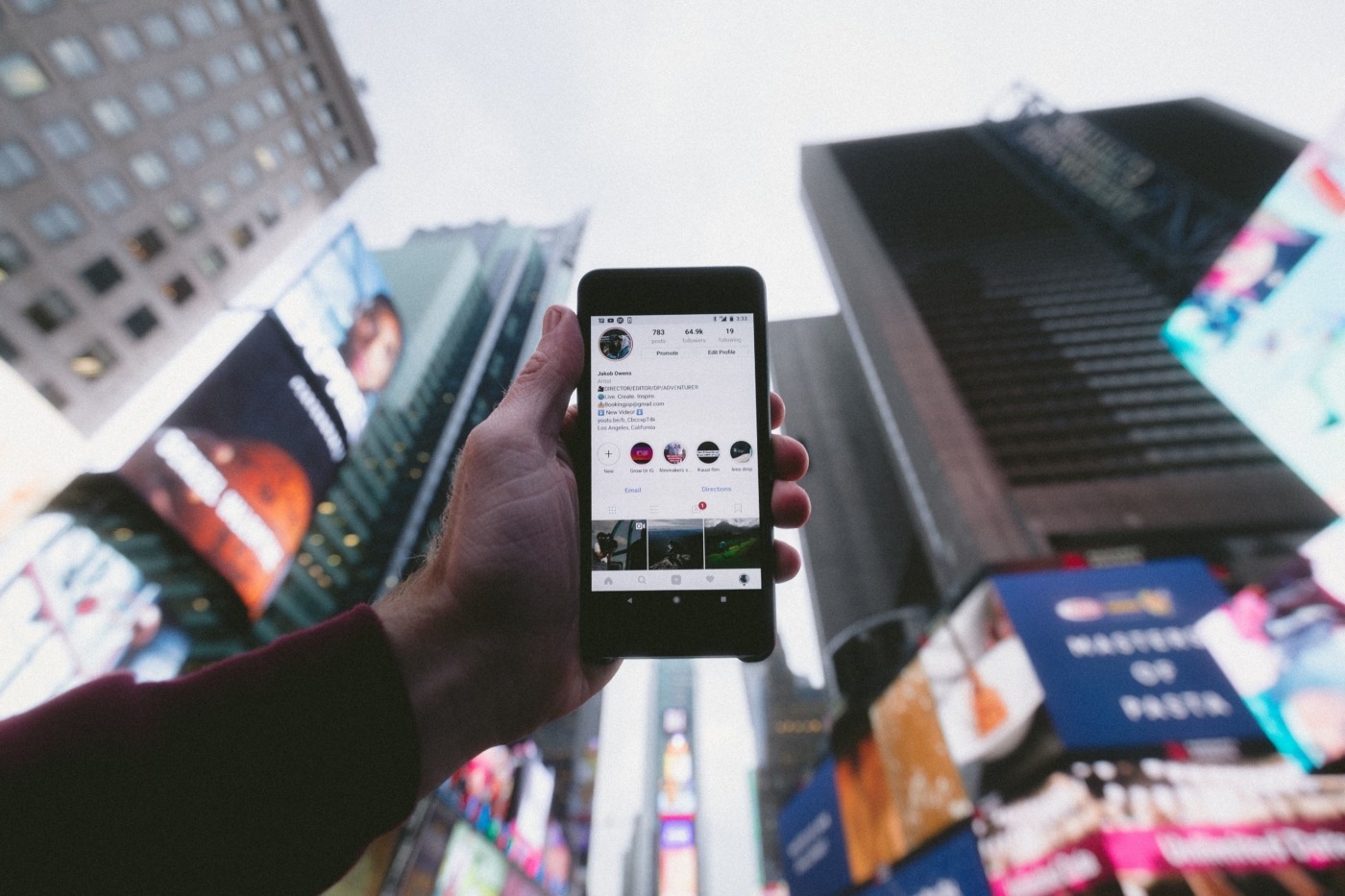What is the impact of social media on travel?
With the development of apps like Facebook and Instagram, social media has seemingly revolutionised the way we travel. When I was younger, I remember the ordeal of planning family holidays through a travel agent: explaining the type of trip we wanted, laying out our budget and ultimately choosing our destination from a selection presented to us in a catalogue. Today, I struggle to recall the last time I even considered visiting a travel agents. Now my primary travel inspiration comes from social media, as I’m sure it does for many other young people. Instead of flipping through catalogue pages, we scroll through Instagram posts in search of that ideal exotic location.
When it comes to planning the perfect holiday, Instagram has become a huge factor for many young people today. Everybody wants to return home with an album full of aesthetic and ‘instagramable’ photos that show off their trip. In fact, 40% of UK Millennial travellers say that they consider how “instagramable” a location is when planning their travels, whether it will look good on their feed and get enough likes. Accordingly, the best way to find that desired ‘post-able’ holiday destination is now through social media itself. Whether it is viewing a friend’s recent travel post that triggers wanderlust, or a photo directly from a travel account, social media ignites the desire to explore new places for so many of its users. It is a hotspot for travel inspiration, with over 450 million posts using the hashtag “travel”.
Social media is used by these companies to increase brand awareness, inspire their followers and even allow followers to book holidays there and then
Travel companies have picked up on this trend, now latching onto social media as a part of their own marketing strategies. The majority of airlines, tour companies, hotels and other travel-related businesses have their own Instagram, Facebook and Twitter pages. Social media is used by these companies to increase brand awareness, inspire their followers and even allow followers to book holidays there and then. In 2018, Instagram introduced a feature that allows users to book holidays and make reservations directly through the app.
Some travel businesses have taken this one step further. For example, EasyJet airline recently launched a ‘Look&Book’ feature on their travel app in which customers can “search for a flight using just a photo”. It’s as simple as taking a screenshot of the destination that appeals to you, uploading it to Look&Book and letting EasyJet not only identify the location, but also find the best flights out for you. This new feature feeds directly off of social media culture and expands on its ability to globalise the world.
The online platform has transcended its purpose for personal communication and become a means of sharing life experiences, cultural awareness and incredible stories from across the globe
Furthermore, while travel businesses have become extremely active on their own social media pages, one of the leading marketing strategies is the use of the social influencer. Research shows that 70% of teens trust influencers more than traditional celebrities – in 2018, $1.6 billion were funnelled into sponsored influencer posts on Instagram alone; and 63% of 18-24 year old Instagram users follow travel influencer accounts. It is difficult to find a popular travel brand that hasn’t collaborated with social influencers to promote their services, which goes to show the extent to which the travel industry has been affected by social media. The online platform has transcended its purpose for personal communication and become a means of sharing life experiences, cultural awareness and incredible stories from across the globe.
However, as with many aspects of social media, there are obvious downsides to this travel revolution. It could be argued that the obsession with documenting and sharing your travel adventures online distracts from being present and truly enjoying the experience. Our motives to travel seem to have shifted away from wanderlust and have become more egocentric, travelling now for the sake of likes and follows. This draws away from the some of the most important elements of travel. Is it really possible to immerse yourself in other cultures when your phone is constantly notifying you with links to back home?
We should be grateful for the global awareness it has given us, and the insight into new places and different means of travel
Furthermore, I believe that social media’s influence on travel feeds into the notably dangerous culture of self-comparison online. Constantly being reminded of the seemingly life-changing adventures that everybody posts can negatively impact a person’s self-image, making them feel self-conscious about their own life. Seeing the highlight reel of your friend’s adventures can make you feel as if you are not doing enough, or become insecure about the financial, social or personal circumstances that restrict you from travelling as much as the people you follow.
In general, social media has revolutionised the way we travel. Providing tonnes of inspiration and new opportunities, it has opened so many new doors. We should be grateful for the global awareness it has given us, and the insight into new places and different means of travel. At the same time, it is equally important not to allow the posts we see to affect our self-image or reflect on our own experiences any differently.

Comments (1)
Hello! Cool article.
I would be interested in more details about the study you mentioned in this article (Dec 9, 2019) about social Media and traveling.
Please let me know where the study is published (citation)
Thank you,
Lena